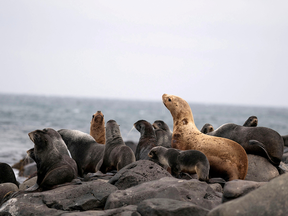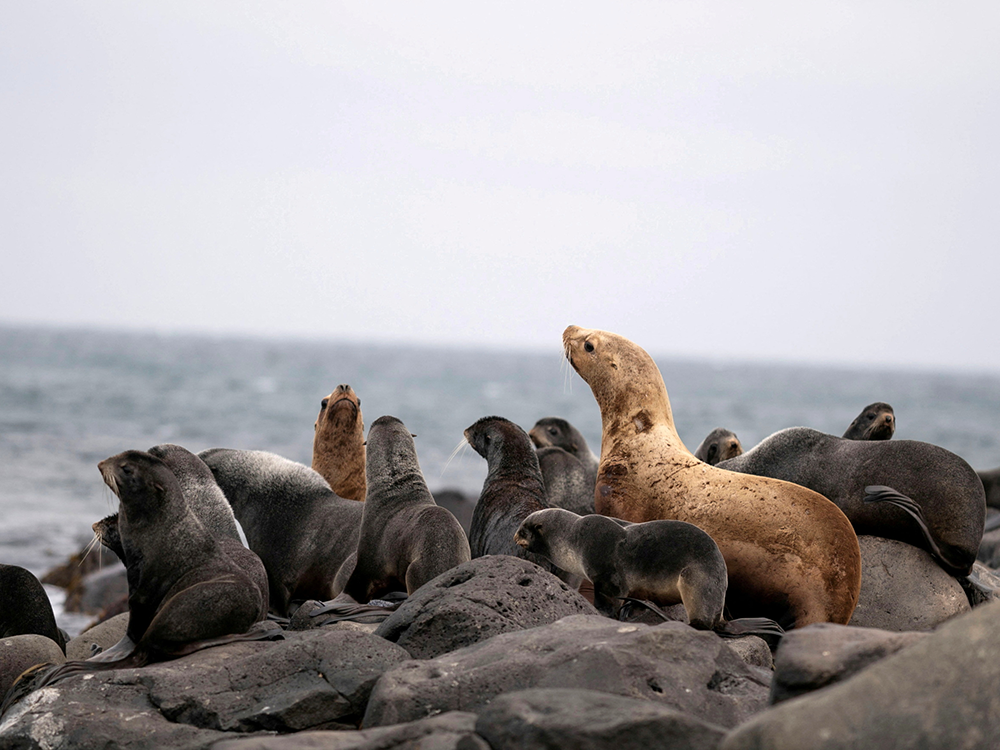Megan Leslie and Jason Storah: Delegates to call on business leaders to commit to biodiversity to sustain populations, economies

Article content
By Megan Leslie and Jason Storah
Advertisement 2
Article content
If the numbers surrounding nature were presented as a financial report, they’d stop anyone in their tracks: Our planet’s monitored wildlife populations have plummeted by an average of 69 per cent in the past 50 years. A million plant and animal species now face extinction. We lose 91 hockey rinks worth of forest every minute.
Article content
Article content
In the face of this acute crisis of biodiversity loss, governments will gather at COP15 — the UN’s Convention on Biological Diversity conference in Montreal this month — to negotiate the next 10 years of nature protections. This crisis is caused by human activity and exacerbated by climate change, and it is threatening the natural world that sustains our populations and economies.
This crisis is everyone’s business, including, well, businesses.
Advertisement 3
Article content
For most of human history, there’s been a direct line between nature and commerce. Today, at least half of global GDP is critically dependent on healthy functioning ecosystems, whether directly (from the use of resources like water, processes like pollination, or conditions like soil health) or indirect activities — like retail, for example — that rely on those things.
To put it in plain terms, there aren’t many businesses for which dwindling biodiversity does not create serious risks, through resource scarcity, increased costs, supply chain disruptions or less resilience to extreme weather events. Think of the bird who scatters the seed that produces the Douglas fir that’s then harvested, processed into timber, built into a home that is then marketed, sold, heated, serviced, furnished and insured. If the bird disappears, so too does the entire value chain it sustains.
Advertisement 4
Article content
Despite this, most businesses continue to undervalue the role of nature in facilitating what they do. According to KPMG’s 2022 Survey of Sustainability Reporting, less than half of businesses whose operations were threatened by biodiversity loss identified that risk in their corporate reporting.
This won’t hold for long. In a September report that pegged the value of nature-related risk to corporations at $1.9 trillion, Moody’s identified ecosystem health and biodiversity loss as increasing areas of scrutiny for policy-makers and investors alike. And a new multi-national Taskforce on Nature-related Financial Disclosures — the members of which represent US$19.4 trillion in assets — is working to codify a globally recognized framework for businesses to disclose nature-related risks, with the support of the UN and several governments.
Advertisement 5
Article content
As stakeholders of all types demand more from companies, it’s clear that every business will soon have to account for its impact in the natural world, one way or another. As stewards of a country with some of the most spectacular nature on earth — in quality and quantity — we have a lot to lose. Canadian businesses have a unique responsibility, and opportunity, to lead the preservation and regeneration of natural systems.
Delegates will assemble for COP15 starting on Dec. 7. We are calling on leaders in the business community to make explicit commitments to biodiversity part of their environmental, social and governance (ESG) plans.
-
How entrepreneurs are turning mining waste into useable metals amid the electrification boom
-

Ottawa to give out $800 million to clean fuels companies, with more funds to come
-

Pipeline giant Enbridge and CPPIB back France’s first commercial offshore wind project
Advertisement 6
Article content
These commitments should occur on two fronts:
Internal transformation
Remember the adage “think globally, act locally”? We recommend businesses first conduct biodiversity assessments across their full value chains to understand their impacts and dependencies on nature. They should then work to neutralize deleterious activities, nurture beneficial ones, and directly support (financially and otherwise) the biodiversity-enhancing and climate fighting work of Indigenous peoples, NGOs, and community groups. As an example, Aviva has committed to address both deforestation and biodiversity risk, and is currently undertaking this work in its own operations; it also funds restoration efforts by community organizations across Canada, including six projects included in WWF-Canada’s Nature and Climate Grant Program. Many large companies have established formal ESG targets for essential climate change-related initiatives, such as carbon sequestration or emissions reduction. Bay Street may be more comfortable accounting for carbon than for plants and animals, but that’s no reason to not do both.
Advertisement 7
Article content
External leadership
Businesses carry big influence when they assume public leadership on environmental issues: with governments, with the public, with one another. COP15 creates several chances for them to apply this to the biodiversity crisis. As an example, they can join the Finance for Biodiversity Foundation, of which Aviva is a member, in urgently advocating for the UN’s Global Biodiversity Framework to clearly require the alignment of all public and financial investments with biodiversity goals. Or they could join more than 300 global companies and financial institutions in supporting the Business for Nature campaign, which is working with governments to make biodiversity assessment and disclosure mandatory. Actions like these represent the best sort of corporate peer pressure: The more high-profile companies publicly prioritize nature in major decisions, the better off we’ll all be.
Ecosystems are interconnected — they must be, in order to thrive. The same is true of corporate efforts to protect our planet. By prioritizing biodiversity alongside aggressive decarbonization, Canadian businesses have a chance to be global leaders, while reducing their risks and protecting their bottom lines. We must do the right thing. Now.
Megan Leslie is president and CEO of World Wildlife Fund Canada. Jason Storah is chief executive of insurance company Aviva Canada.



